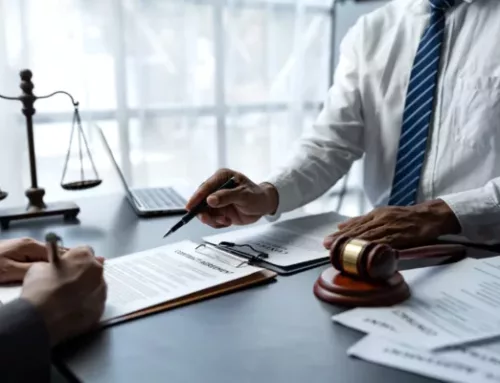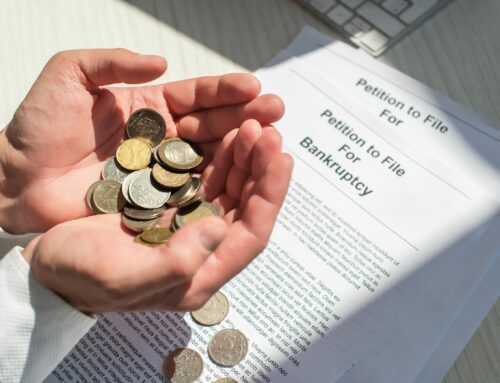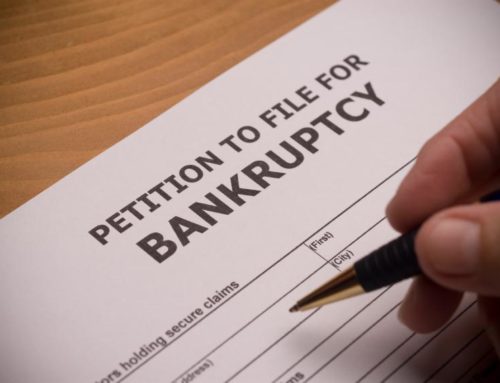Filing bankruptcy today won’t hinder you from buying a home soon. You may even apply for a home mortgage before your bankruptcy case is closed. Below is an overview of how the two most common types of bankruptcy influence your ability to apply for a mortgage, as well as a home buyer’s other options for owning a house.
What happens to properties in a bankruptcy case?
When facing monthly payment backlogs due to medical, credit card, or other personal debts, consumers often file for a Chapter 7 or 13 bankruptcy. A Chapter 7 bankruptcy essentially allows the court to seize all your non-exempt properties, place it in a bankruptcy estate, be sold by a trustee, and then used to pay back unsecured debts. The keyword here is “non-exempt,” which means that if your assets fall under the exempt category, these will remain under your name.
In a secured debt where there is collateral, the creditor may reclaim the security deposit. For example, when you get a loan where the car is the collateral, creditors may repossess it. If you wish to learn more about the difference between secured and unsecured loans, you can get in touch with a bankruptcy attorney.
Filing bankruptcy under Chapter 13, on the other hand, leads to a debt consolidation under a new repayment plan, which means that you keep your property. The new payment schedule is usually spread for a period of three to five years and takes into consideration your means to pay. Since the court approves this new plan, borrowing for a new home would require that you also get pre-approval from the bankruptcy court.
What are mortgage loans available post-bankruptcy?
 Although some types of loans require a waiting period before purchasing a home, bankruptcy filers have several loan options to choose from when deciding to purchase a home. One of the fastest ways is through a government-sponsored home mortgage such as an FHA loan, VA loan, or USDA loan.
Although some types of loans require a waiting period before purchasing a home, bankruptcy filers have several loan options to choose from when deciding to purchase a home. One of the fastest ways is through a government-sponsored home mortgage such as an FHA loan, VA loan, or USDA loan.
- FHA-backed loans. Your first option is the Federal Housing Administration Loan (FHA). Generally, lending companies with FHA loans require a two-year waiting period for those with Chapter 7 bankruptcies. The case is different for borrowers who filed Chapter 13 bankruptcy since they can get approval even before the court releases the discharge notice. Moreover, you can only apply for a mortgage if the lender approves, and if the court approves you as capable of paying off the required monthly amortization. Although the federal government provides mortgage insurance should you default on the loan, FHA may have your house foreclosed.
- Veterans Loans. Suppose you are one of the military veterans or a surviving spouse of a veteran. In that case, you may be eligible for a mortgage loan under the United States Department of Veterans Affairs. Chapter 7 filers must wait two years after debt discharge before applying for a VA home mortgage while Chapter 13 filers must wait a year.
- Income-based loans. If you fear that your income is insufficient to let you find a home, then you can consider getting a loan from the United States Department of Agriculture’s Rural Development. USDA loans are designed for individuals with low income residing in rural areas. In general, the prescribed waiting period for a USDA loanee who declared bankruptcy under Chapter 7 is three years. Those planning to apply for bankruptcy under Chapter 13 would also need to wait a year before applying.
- Non-government loans. Aside from a government-owned loan, numerous private companies offer conventional loans for potential borrowers. Banks may also offer home loans but have stricter requirements and even higher interest rates for homebuyers who have a history of bankruptcy.
Extenuating circumstances occurring within a year before filing for bankruptcy may allow a mortgage applicant to skip the prescribed wait time and have the monthly cost for mortgage payments reduced. If you are still in the process of applying for bankruptcy, consult with a bankruptcy lawyer to determine if an exemption applies in your case.
How can I apply for a mortgage after bankruptcy?
Aside from the period of waiting, it is vital to take steps to rebuild your credit score after a bankruptcy petition. Lenders for a government-supported or conventional loan may look into your credit history and monthly income during a mortgage application to determine your eligibility and the loan amount. Those with higher credit scores generally pay a lower down-payment compared to mortgage borrowers with lower scores in their credit reports.
But don’t let your dreams of owning a home stop you from filing for bankruptcy now. Once you decide to apply for bankruptcy, debt relief can speed up your buying process. If you need legal advice as to which bankruptcy you should file, or how bankruptcies affect your current mortgage payment, consult with Thomas E McIntire & Associates, L.C. Law Firm. Our bankruptcy attorneys offer a free debt analysis for clients throughout West Virginia. Get the fresh start you deserve by calling us at 304-313-4095 today.





